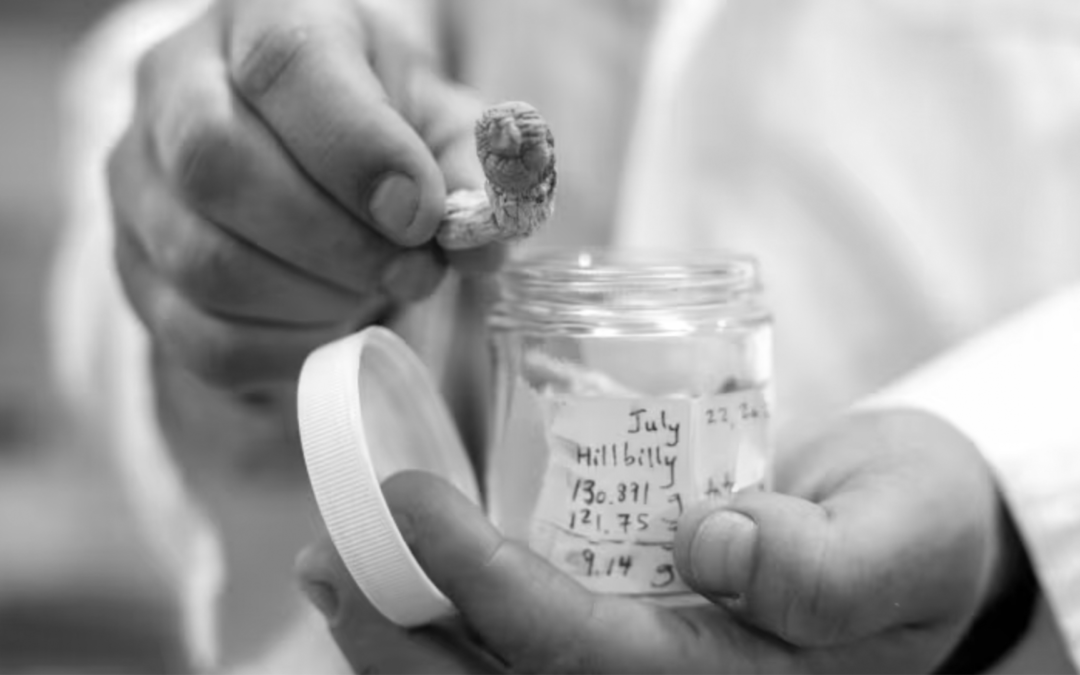Psychedelic researchers find themselves in a heated debate over the necessity of the mind-altering effects of these drugs for realizing their therapeutic potential. In part two of the three-part series on the science of psychedelics, we delve into the discussion sparked by the potential separation of therapeutic benefits from the hallucinogenic experiences.
The Cluster Headache Mystery
Imagine experiencing excruciating cluster headaches, a condition affecting only about one in 1,000 people. Science journalist Rachel Nuwer introduces the idea that psychedelic drugs might hold the key to alleviating this debilitating pain.
LSD and Cluster Headaches: A Surprising Connection
Professor Torsten Passie, with over 40 years of psychedelic research, shares a surprising encounter with Harvard University administrators. Their skepticism about psychedelic research, fueled by Timothy Leary’s controversial past, leads Passie to propose a study using 2-Bromo-LSD, an inactive LSD placebo. To his surprise, this substance proves effective in treating cluster headaches.
The Rise of Psychoplastogens
The conversation then shifts to the emerging field of psychoplastogens—psychedelic substances without the hallucinogenic effects. David Olson, a chemist at the University of California, Davis, and co-founder of Delix Therapeutics, advocates for the development of nonhallucinogenic psychedelics to address scalability issues associated with psychedelic-assisted psychotherapy.
Structural Plasticity and Neural Growth
David Olson emphasizes the goal of retaining the positive effects on neural growth observed with psychedelics, without the need for guided therapeutic trips. He argues that scalable medicines are essential to address the global burden of neuropsychiatric diseases.
Gül Dölen’s Critique: The Importance of Learning
Neuroscientist Gül Dölen challenges the idea of psychoplastogens, asserting that psychedelics’ therapeutic effects are context-dependent and involve learning. Her research suggests that critical periods, akin to childhood learning windows, play a role in the therapeutic effects of psychedelics.
The Context-Dependent Nature of Psychedelics
Gül Dölen’s study, featured in Nature, explores the context-dependent activities of psychedelics. The results indicate that the therapeutic effects are tied to specific learned habits, emphasizing the role of the trip in achieving lasting positive outcomes.
The Debate: Trip or No Trip?
The central debate emerges: Is the trip necessary for healing, or is it merely a distraction? While Torsten Passie dismisses the pursuit of tripless psychedelics for neuropsychiatric conditions, David Olson believes in exploring all avenues to meet the diverse needs of patients.
The Future of Psychedelic Research
As the debate continues, researchers grapple with the complexities of understanding which type of drug works for whom and for what condition. The series promises a captivating exploration of the dream experiments that psychedelic researchers are eager to conduct in the future.
In the quest to unlock the full potential of psychedelics, researchers navigate uncharted territory, seeking to balance therapeutic efficacy with safety and scalability. The psychedelic journey is not just about altering consciousness; it’s a multidimensional exploration of the mind’s healing capacities. Stay tuned for the concluding episode of this series, where we venture into the dream experiments shaping the future of psychedelic research.

Erin Balsa is a highly skilled and knowledgeable health journalist with a passion for educating the public on important health and wellness topics. With extensive experience in both traditional and digital media, Erin has established herself as a trusted voice in the field.

